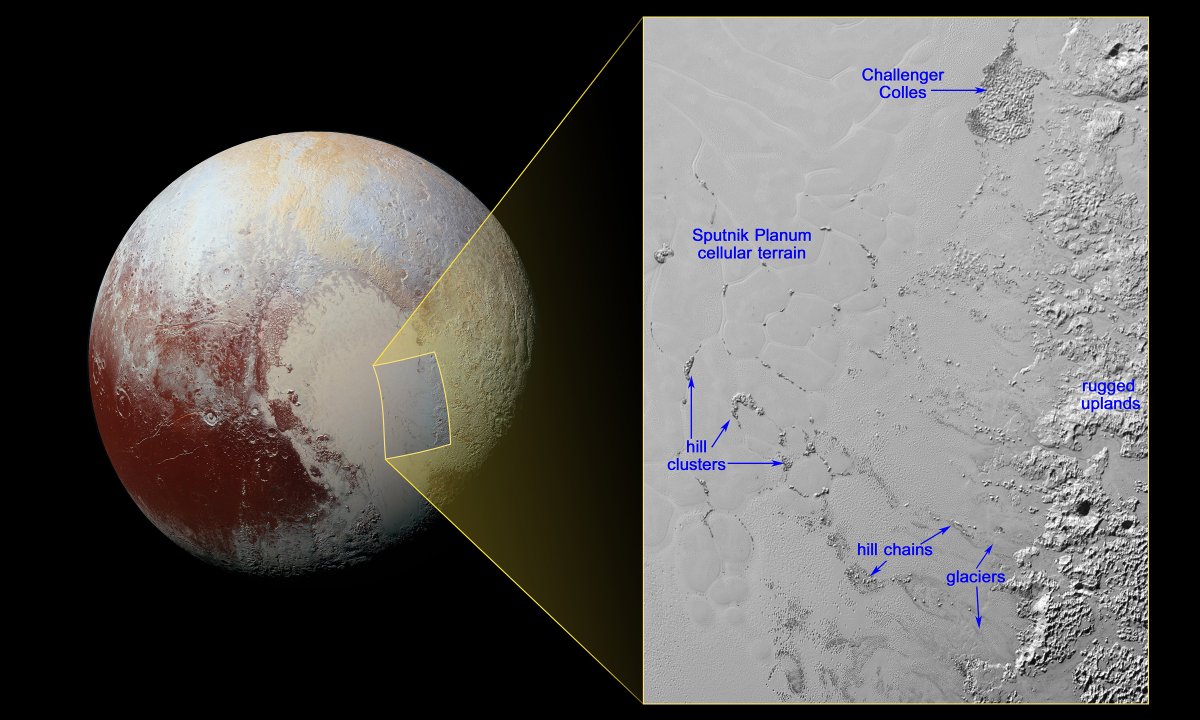MessageToEagle.com – New images and data from NASA’s New Horizons mission reveals yet another striking feature of Plutos’ mysterious surface – numerous, isolated floating hills.
These hills that may be fragments of water ice from Pluto’s surrounding uplands, measure one to several miles or kilometers across.
The hills, which are scattered across the vast ice plain named Sputnik Planum within Pluto’s ‘heart,’ are likely miniature versions of the larger, jumbled mountains on Sputnik Planum’s western border.

They are yet another example of Pluto’s fascinating and abundant geological activity.
Because water ice is less dense than nitrogen-dominated ice, scientists believe these water ice hills are floating in a sea of frozen nitrogen and move over time like icebergs in Earth’s Arctic Ocean.
The hills are likely fragments of the rugged uplands that have broken away and are being carried by the nitrogen glaciers into Sputnik Planum.
‘Chains’ of the drifting hills are formed along the flow paths of the glaciers.
Especially large accumulation of these hills, measuring 37 by 22 miles (60 by 35 kilometers) can be found further north. The feature is named Challenger Colles in honoring the crew of the lost space shuttle Challenger.
Researchers believe that these hills have been ‘beached’ due to the nitrogen ice being especially shallow.
The image measures a little over 300 miles (almost 500 kilometers) long and about 210 miles (340 kilometers) wide. It was obtained at a range of approximately 9,950 miles (16,000 kilometers) from Pluto, about 12 minutes before New Horizons’ closest approach to Pluto on July 14, 2015.
MessageToEagle.com
via NASA






